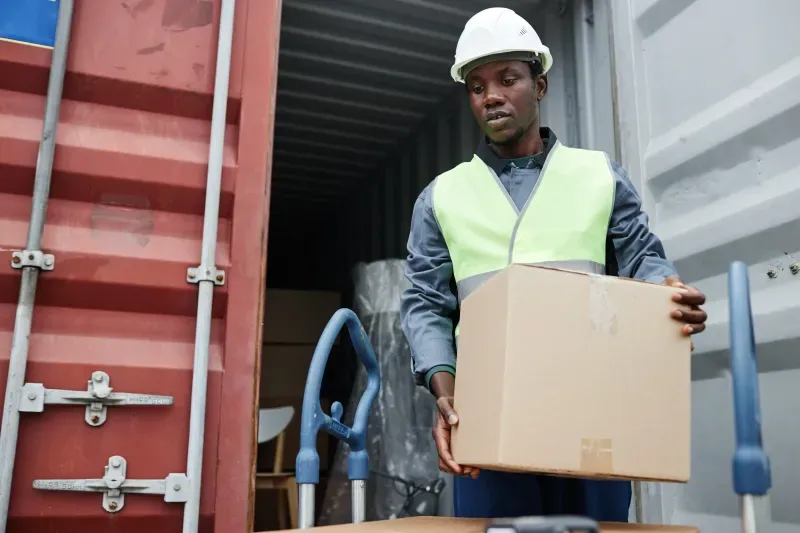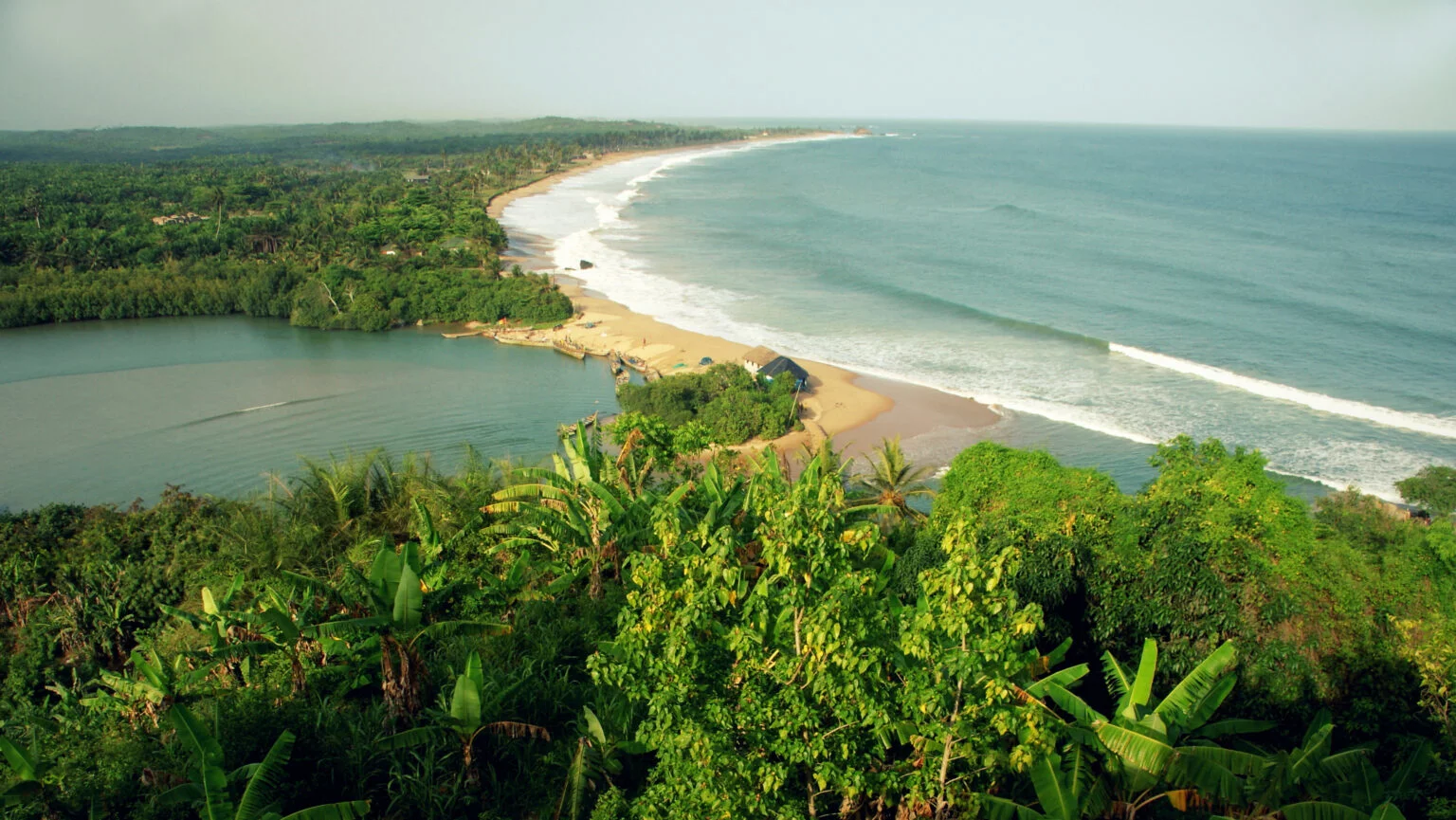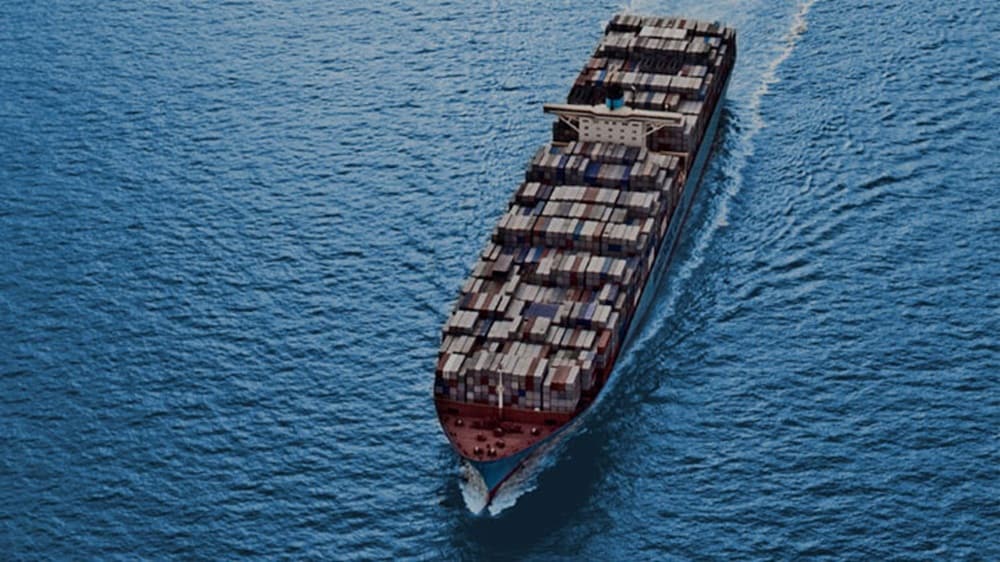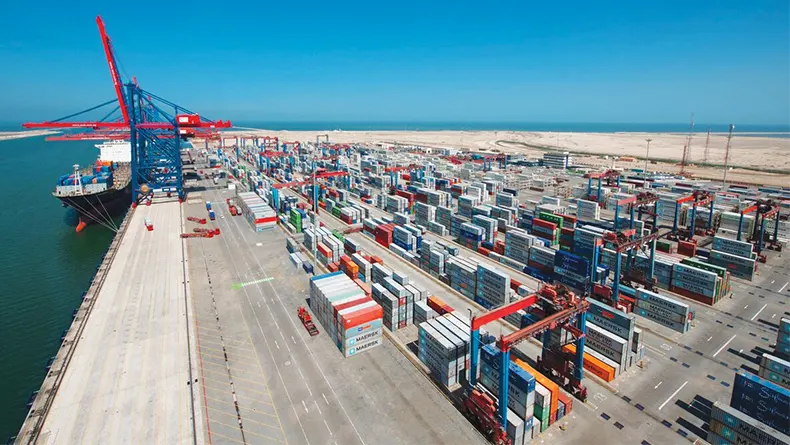Connecting Congo Brazzaville across Africa and beyond
We have been connecting Congolese businesses across Africa and beyond for many years.
Limark has been helping businesses ship cargo to and from Congo Brazzaville through comprehensive logistics solutions. Our expertise in regional trade and customs regulations ensures seamless cross-border movement of your cargo, whether you’re exporting timber, oil, agricultural products, or importing essential goods. With a vast network of partners and tailored services, we optimize your supply chain, reduce costs, and unlock new opportunities for growth in the heart of Central Africa.

Import regulations
Importing goods to Congo Brazzaville requires navigating specific procedures and documentation. Here’s a breakdown of the essential requirements:
Product categories requiring import licenses/permits
Food and Agricultural Products
Imports of meat, dairy products, fish, grains, fruits, and vegetables require import permits and/or phytosanitary/health certificates from the Ministry of Agriculture, Livestock, and Fisheries (Ministère de l’Agriculture, de l’Elevage et de la Pêche).
Specific products like rice, sugar, and wheat flour may require additional import authorizations.
Genetically Modified Organisms (GMOs) are subject to specific import regulations and require permits from the Ministry of Scientific Research and Technological Innovation.
Pharmaceuticals and Medical Devices
- The Ministry of Health and Population (Ministère de la Santé et de la Population) regulates the import of pharmaceuticals and medical devices.
- A Marketing Authorization (AMM) from the National Drug Control Agency is required for all medicines.
- Medical devices must comply with relevant technical standards and be registered with the Directorate of Pharmacy and Medicine.
Chemicals and Hazardous Materials
- The Ministry of Industrial Development and Private Sector Promotion (MIDPSP) and the Ministry of Environment and Sustainable Development (MESD) regulate the import of chemicals and hazardous materials.
- Import permits are required, and detailed safety data sheets (SDS) must be submitted.
- Strict adherence to packaging, labeling, and transportation regulations is essential.
Vehicles and Spare Parts
- The Ministry of Transport and Civil Aviation (MTCA) regulates the import of vehicles and spare parts.
- Import permits are required for vehicles.
- Age and emission standards apply to used vehicles.
Other Regulated Products
Additional import licenses or permits may be required for specific products like:
- Telecommunication equipment
- Explosives
- Firearms and ammunition
- Wildlife and wildlife products
- Petroleum products
- Precious metals and stones
- Exhaustive List of Prohibited and Restricted Imports:
Prohibited
- Narcotic drugs and psychotropic substances
- Pornographic and obscene materials
- Counterfeit and pirated goods
- Hazardous waste (Basel Convention)
- Ozone-depleting substances (Montreal Protocol)
- Counterfeit currency and stamps
- Toxic chemicals and pesticides (not approved by the Ministry of Environment)
Restricted (require special permits)
- Live animals and animal products (require health certificates)
- Plants and plant products (require phytosanitary certificates)
- Firearms and ammunition
- Explosives
- Radioactive materials
- Endangered species and products (CITES permits required)
Relevant agencies
- Directorate General of Customs and Excise (DGCE)
- Ministry of Finance and Budget
- Ministry of Agriculture, Livestock, and Fisheries
- Ministry of Health and Population
- Ministry of Industrial Development and Private Sector Promotion (MIDPSP)
- Ministry of Environment and Sustainable Development (MESD)
- Ministry of Transport and Civil Aviation (MTCA)
- National Drug Control Agency
- Agency for Regulation and Control of Pesticides and Fertilizers (ARCP)
- National Office of Environment (ONE)
Free Time
- Typically, 7 days for general cargo and 14 days for containerized cargo after discharge.
- Varies depending on the shipping line and port (usually Pointe-Noire).
Demurrage charges
- Applied when the free time is exceeded.
- Calculated per container, per day.
- Rates vary depending on the shipping line, container size, and time elapsed.
Detention Charges
- Applied when the container is held beyond the agreed-upon time for return to the shipping line after being picked up from the port.
- Separate from demurrage charges.
- Rates vary depending on the shipping line and container size.
Storage Limitations
- Port terminals have limited storage capacity
- Containers not cleared within the allowed time are moved to an off-dock depot at the importer’s expense.
Calculation Methods
Demurrage and detention charges are calculated based on calendar days, including weekends and public holidays.
Commercial Invoice
- Detailed description of goods (including HS codes)
- Quantity, weight, and unit price of goods
- Total invoice value (in USD or XAF)
- Incoterms (International Commercial Terms)
- Payment terms
- Consignee and consignor details
Packing List
- Detailed list of all items in each package
- Description, quantity, weight, and dimensions of each item
- Package markings and numbers
Bill of Lading/Airway Bill
- Evidence of the contract of carriage between the shipper and carrier
- Details of the shipment, including the consignee, consignor, and port of loading/discharge
Certificate of Origin
- Declares the origin of the goods
- Issued by the Chamber of Commerce in the exporting country
- May be required for preferential tariff treatment under trade agreements (e.g., CEMAC)
Import Declaration Form (IDF)
- Submitted through the SYDONIA World system
- Requires detailed information about the shipment and importer
- Import License/Permit (for regulated goods):
- Issued by the relevant government agency
Other Certificates
- Phytosanitary certificate (for plants and plant products)
- Health certificate (for animals and animal products)
- Certificate of analysis (for chemicals and food products)
- CITES permit (for endangered species)
ECTN (Electronic Cargo Tracking Note)
- Mandatory for all maritime shipments to Congo Brazzaville.
- Obtained from the Council of Congolese Shippers (Conseil Congolais des Chargeurs – CCC).
Import licenses and permits
- Identify the Regulating Agency:
- Determine the specific ministry or agency responsible for your goods based on the product category.
- Gather Required Documents:
- Proforma invoice or commercial contract
- Technical specifications and data sheets (if applicable)
- Certificates of origin, analysis, quality, etc.
- Business registration documents (for companies)
- Taxpayer identification number (NIF)
- Submit Application:
- Complete the import permit application form
- Submit the application along with the required documents and fees to the relevant agency
- Applications are typically submitted in person
- Processing and Approval:
- The application will be reviewed and processed by the agency
- Processing times vary but can take several weeks
- If approved, the import permit will be issued
- Validity and Renewal:
- Validity periods vary depending on the product and agency.
- Renewal procedures involve submitting a new application with updated documents before the expiry date.
- Costs:
- Import permit fees vary depending on the product and agency.
- Additional costs may include inspection fees and testing fees
Customs clearance procedures
- Pre-Shipment Inspection (PSI)
- Mandatory for most commercial shipments valued over XAF 1 million (approximately USD 1,700).
- Conducted by Bureau Veritas (BIVAC) in the country of origin.
- Verifies the quality, quantity, and value of goods.
- Arrival and Unloading:
- Vessel or aircraft arrives at the port or airport.
- Cargo is unloaded and placed in customs control.
- Document Lodgement and Declaration:
- Importer or their agent lodges import documents (IDF, commercial invoice, packing list, bill of lading, etc.) with customs.
- Electronic declaration is submitted through the SYDONIA World system.
- Assessment and Payment:
- Customs verifies the documents and assesses import duties, taxes, and fees.
- Payment is made through a local bank.
- Inspection (if required):
- Customs may select shipments for physical inspection based on risk assessment.
- Release of Goods:
- If the shipment complies with all regulations and requirements, and duties/taxes are paid, customs releases the goods.
Port/Terminal operations
Major Seaport
Port of Pointe-Noire: The main commercial port, handling containerized and general cargo.
Air Cargo Hub
Maya-Maya Airport (Brazzaville): The main airport for air cargo imports.
Cut-off dates
- vary depending on the shipping line and destination.
- Confirm with your shipping agent or freight forwarder well in advance.
Documentation requirements at terminals
- Ensure all required documents are submitted electronically through the SYDONIA World system before the shipment arrives.
- Original documents may be required for verification at the terminal.
Container Pickup/Drop-off and Storage
- Coordinate with your shipping agent or freight forwarder for container pickup and drop-off procedures.
- Be aware of free time limitations and potential demurrage/detention charges.
Disclaimer: This information is based on the latest available data and may be subject to change. Always consult with relevant authorities and experts for the most up-to-date and accurate information.
Export regulations
Get a detailed guide that provides an in-depth look into every aspect of the export process to ensure your goods are shipped efficiently and in compliance with all legal standards.
Product Categories Requiring Export Licenses/Permits
Crude Oil and Petroleum Products
- As Congo’s primary export, these commodities are regulated by the Ministry of Hydrocarbons (Ministère des Hydrocarbures) and the National Petroleum Company of Congo (SNPC).
- Export licenses are mandatory and subject to production quotas, quality standards, and contractual agreements with international buyers.
Timber and Wood Products
- The export of timber is regulated by the Ministry of Forest Economy (MEF) to ensure sustainable forestry practices and prevent illegal logging.
- Exporters must obtain export permits and provide evidence of legal origin through the timber traceability system.
- Specific permits are required for endangered tree species under the Convention on International Trade in Endangered Species (CITES).
Agricultural Products (Sugar, Palm Oil, Cocoa)
- Exporting agricultural products may require permits from the Ministry of Agriculture, Livestock, and Fisheries (MALF) depending on the product and quantity.
- Quality control and phytosanitary certifications are often necessary to ensure compliance with international standards.
Minerals (Potash, Copper, Iron Ore)
- Export of minerals is regulated by the Ministry of Mines and Geology (MMG).
- Export permits are required, and exporters must adhere to environmental regulations and mining laws.
- The state-owned mining company, Société Nationale des Pétroles du Congo (SNPC), plays a significant role in mineral exports.
Other Regulated Products
- Export licenses or permits may be required for other products like scrap metal, wildlife products (with CITES permits), and cultural artifacts.
Prohibited and Restricted Exports
Prohibited
- Narcotic drugs and psychotropic substances
- Pornographic and obscene materials
- Counterfeit and pirated goods
- Hazardous waste (Basel Convention)
- Ozone-depleting substances (Montreal Protocol)
- Unprocessed diamonds (Kimberley Process Certification Scheme)
- Restricted (require special permits):
- Endangered species and products
- Live animals and animal products
- Unprocessed timber and wood products
- Certain minerals and gemstones
- Cultural artifacts
Required Documents
Commercial Invoice: Detailed description of goods (including HS codes), quantity, weight, value (in USD or XAF), Incoterms, payment terms, and consignee/consignor details.
Packing List: An itemized list of goods in each package, including description, quantity, weight, dimensions, and package markings.
Bill of Lading/Airway Bill: Evidence of the contract of carriage between the shipper and carrier, with details of the shipment, consignee, consignor, and port of loading/discharge.
Certificate of Origin: Issued by the Chamber of Commerce, Industry, Agriculture, and Trades (CCIAM), declaring the origin of the goods.
Export Declaration (DEX): Electronic declaration submitted through the Sydonia World system, providing detailed information about the shipment.
Export License/Permit (if applicable): Issued by the relevant government agency.
Export declaration process (through Sydonia World)
- Register as an exporter on the Sydonia World platform.
- Prepare and submit the DEX electronically through Sydonia World.
- Customs verifies the declaration and supporting documents.
- If compliant, customs approves the export and issues an export authorization.
Required export certificates
- Phytosanitary Certificate (for plants and plant products): Issued by the Plant Protection Service.
- Health Certificate (for live animals and animal products): Issued by the Veterinary Services.
- Certificate of Analysis: This may be required for specific products like timber and minerals to verify quality and composition.
- CITES Permit (for endangered species): Issued by the Ministry of Forest Economy.
Major Seaport
Autonomous Port of Pointe-Noire (PAPN): The primary port for exports, handling containerized, bulk, and liquid cargo, including oil and timber.
Air Cargo Hub
Maya-Maya International Airport (BZV): The main airport for air cargo exports, with limited capacity for large shipments.
Cut-off Times and Procedures
Cut-off times: Vary depending on the shipping line or airline and destination. Confirm with your shipping agent or freight forwarder well in advance.
Procedures: Typically include submitting documents through Sydonia World, customs clearance, security screening, and cargo loading.
Container Storage and Free Time
- Limited container storage is available at the port
- Free time for storage varies depending on the shipping line and the type of cargo
- Storage fees apply after the free time expires
Returning Empty Containers
- Coordinate with your shipping line or agent to return empty containers to the designated depot.
- Failure to return containers on time may result in detention charges.
Duties, taxes, and fees
Export Duties: Generally, Congo does not impose export duties on most goods. However, specific export taxes or royalties may apply to certain products (e.g., oil, timber).
Other Fees: Customs processing fees, document handling charges, terminal handling charges, storage fees (if applicable), and any specific taxes or levies related to the exported product.
Disclaimer: This information is based on the latest available data and may be subject to change. Always consult with relevant authorities and experts for the most up-to-date and accurate information.

Expertise You Can Trust
Seamless cross-border shipping to and from Congo Brazzaville
Congo Brazzaville’s trade regulations can be complex, but Limark is your trusted partner in navigating the complexities. Our in-depth knowledge of local laws and customs procedures ensures your shipments move seamlessly and efficiently, preventing costly delays and disruptions.
We are committed to providing reliable, cost-effective shipping solutions, evidenced by our growing presence in Congo Brazzaville. Our team of local experts and robust infrastructure guarantee efficient operations and optimal cost savings for your business. Contact our team to request a quote, book, or learn more about our shipping services to and from Congo Brazzaville.
Get Expert Guidance
Contact our regional experts
Partner with experienced freight forwarders and customs brokers for seamless shipping to and from Congo Brazzaville. Ensure full documentation compliance with the guidance and logistics services of our team.
Sales enquiries
We’re happy to talk to you about your shipment needs anytime. Please get in touch with us.
Ready to ship?
Get your shipment moving faster. Request a quote today for our end-to-end supply chain services.
Other African Countries





